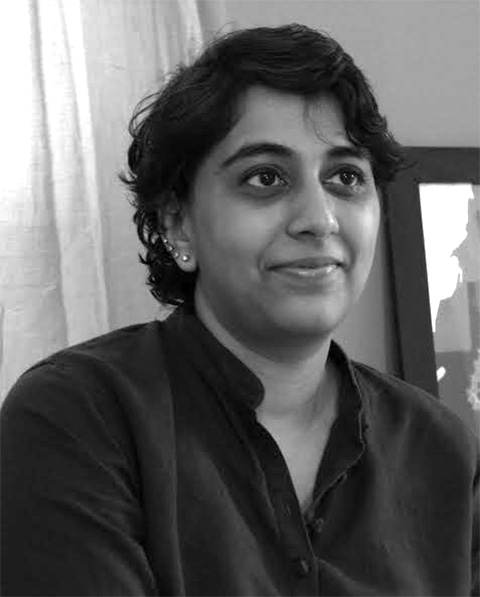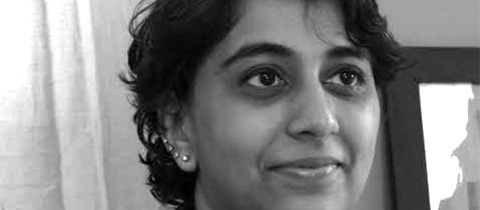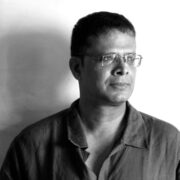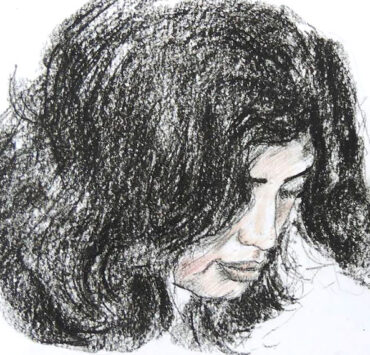Kuzhali Manickavel lived in Winnipeg, Canada, until she was thirteen, after which she moved to India. Her first book, Insects Are Just Like You and Me Except Some of Them Have Wings, was published by Blaft Publications in 2008. The Guardian describes the stories in this collection as “weird, whimsical, surreal, visceral, haunting, quirky and fantastic”.
She followed with an e-chapbook, Eating Sugar, Telling Lies in 2011, and a second collection of short stories titled Things We Found During the Autopsy in 2014, which was praised by Sofia Samatar for being “surreal, funny, caustic, and sad”. This underrated writer has been recognised in the international press for reinventing the wheel and deserves a wider readership in the subcontinent. In this interview, Kuzhali talks to us about reinterpreting the short story, the relative productivity of writing, and the tendency to pigeonhole writers. Read on for excerpts—

Kuzhali Manickavel has been recognised in the international press for reinventing the wheel.
What guides your choice of length for your stories? Most of the pieces in Things We Found During the Autopsy are under five pages.
They just end up being short, I guess. The more I edit, the more I’ll see elements that I feel aren’t really contributing to the story I want to tell, and the piece ends up getting pared down considerably.
How long does it typically take you to finish one story?
Way too long. And I don’t think you ever really understand what that means until someone asks you what you have been up to for the past year and all you have to show for it is an unpublished 150-word story about depressed birds.
Where and when do you usually write?
I write when I get time to write and I write wherever I can write. I really wish I had something more interesting to say than that.
You’ve said in a previous interview: ‘I like how short stories are not necessarily small stories.’ When did you begin to realise this?
I think I realised this once I started reading stories that weren’t necessarily ‘stories’ in the traditional sense. There are so many kinds of storytelling, so many different interpretations of what a story is that I think it’s weird and a little sad to dismiss a story simply because someone thinks it doesn’t have enough words in it.
Who are the writers whose work you most admire? What are you reading at the moment?
I really like Anders Nilsen’s work. I recently read and liked The Gigantic Beard That Was Evil by Stephen Collins, Important Artifacts and Personal Property From the Collection of Lenore Doolan and Harold Morris, Including Books, Street Fashion, and Jewelry by Leanne Sharpton, and Minal Hajratwala’s Bountiful Instructions for Enlightenment.
How does the temple city in which you live shape your writing (if at all)?
I don’t live there anymore. And I feel like that was something that meant more to other people. ‘Female writer of colour writing in English living in a small temple town in south India’ just seemed to hit a lot of token boxes and sometimes it even felt like there was an expectation of some kind of romantic narrative about my life there. A lot of times that just became the bigger thing and I kind of wish I had never mentioned that I lived there. To me, it was just a place I lived in, and I don’t think it shaped my writing any differently than any other place.
I was intrigued at the recurrence of girls’ hostels in your book. What prompted your interest in them?
I spent many years living out of suitcases in various hostels and paying guest accommodations and just typing that out is making me sad.
I noticed that you get asked a lot of questions about being an Indian writer. What are some other questions you would much rather be asked?
I don’t know. I guess it’s annoying being asked questions like that but it is what it is and I understand why it happens. Also, maybe there is nothing else to ask? Except possibly, ‘why is your writing like that?’
Are you working on something right now?
A proper writerly answer would be yes, I have multiple projects in the pipeline right now, many of them involving foreign publications, white people, writing residencies, and white people. The honest answer would be no. And I feel like I have given this exact same answer somewhere else.








